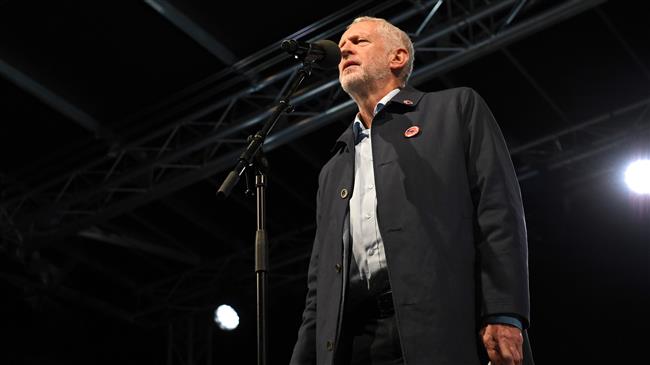Rights groups urge Riyadh regime to free dissident Yemeni writer
International human rights groups say Saudi authorities are holding a popular Yemeni writer with a large number of Twitter followers incommunicado for months, calling for his immediate release.
Reporters Without Borders (RSF) and other watchdogs said in a joint statement on Wednesday that Marwan al-Muraisy was arrested at his home in the Saudi capital of Riyadh on June 1.
The groups noted that Muraisy's arrest may have been "prompted by a few critical tweets and his links to activists", they said, adding that "his family has not seen him or heard from him since he was arrested."
Separately, the New York-based Committee to Protect Journalists (CPJ) stated that Muraisy's recent tweets did not appear “overly political or likely to lead to an arrest.”
Saudi Arabia, which ranks 169th out of 180 on an RSF World Press Freedom Index, has drawn heavy criticism in the wake of a widening crackdown led by Crown Prince Mohammed bin Salman against Muslim preachers, members of the press and intellectuals.
At least 11 journalists are currently detained in Saudi Arabia, according to the CPJ and RSF.
The rights group Prisoners of Conscience, which is an independent non-governmental organization advocating human rights in Saudi Arabia, announced in a post on its official Twitter page on September 11 that Saudi officials had detained a writer, identified as Sultan al-Jumairi.
The post, however, did not provide any information about the charges leveled against him.
Saudi Arabia has recently stepped up politically-motivated arrests, prosecution, and conviction of peaceful dissident writers and human rights campaigners.
Saudi officials have also intensified security measures in the kingdom’s Shia-populated Eastern Province.
Eastern Province has been the scene of peaceful demonstrations since February 2011. Protesters have been demanding reforms, freedom of expression, the release of political prisoners, and an end to economic and religious discrimination against the oil-rich region.
The protests have been met with a heavy-handed crackdown by the regime. Regime forces have increased security measures across the province.
Over the past years, Riyadh has also redefined its anti-terrorism laws to also target activism.
In January 2016, Saudi authorities executed Shia cleric Sheikh Nimr Baqir al-Nimr, who was an outspoken critic of the policies of the Riyadh regime. Nimr had been arrested in Qatif in 2012.
VIDEO | Carol Singers for Palestine on London’s Parliament Square
American warplane downed after Yemeni attacks 'baffled' US air defense: Ansarullah
VIDEO | Yemenis praise the military for its successful operations against Israel
VIDEO | Israel continues to bomb Gaza homes
VIDEO | An insider's view of the country: Meybod City in Yazd
‘All wars have rules. All of those rules have been broken’ by Israel
VIDEO | Report flags India’s violation of rights of Rohingya detainees
Turkey's foreign minister meets Syria's de facto leader in Damascus


















 This makes it easy to access the Press TV website
This makes it easy to access the Press TV website